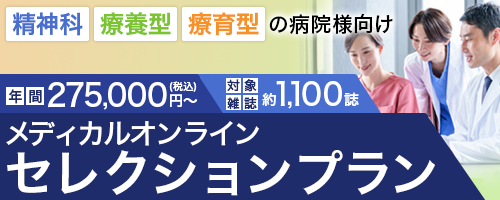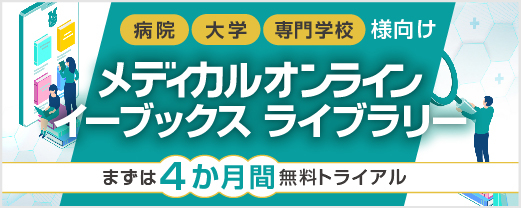アブストラクト
Japanese
| Title | COVID-19拡大期の回復期リハビリテーション病棟における患者と家族の退院後の生活の充実につながる看護 |
|---|---|
| Subtitle | 研究報告 |
| Authors | 原田めぐみ1), 斉木良美2), 柴田万智子1), 古川直美3), 藤澤まこと1), 渡辺るりえ4), 野原教行4), 森貴則4), 安藤弘乃4), 角田相模4) |
| Authors (kana) | |
| Organization | 1)岐阜県立看護大学 地域基礎看護学領域, 2)医療法人和光会, 3)岐阜県立看護大学 成熟期看護学領域, 4)医療法人和光会 山田病院 |
| Journal | 岐阜県立看護大学紀要 |
| Volume | 24 |
| Number | 1 |
| Page | 65-76 |
| Year/Month | 2024 / 3 |
| Article | 報告 |
| Publisher | 岐阜県立看護大学 |
| Abstract | 「要旨」本研究の目的は, COVID-19拡大期に工夫した看護が, どのように患者と家族の退院後の生活の充実につながったのかを分析し, その看護の重要性と課題を検討することとした. 対象者は, A回復期病棟に入院中の患者3名と家族7名, 看護師4名であった. 患者と家族への電話訪問によって, 退院後の生活の現状を把握した. 電話訪問を行った看護師4名に, 入院中に実施した看護について半構成的面接を行った. 患者と家族の退院後の生活の充実につながった看護は, 【退院後の生活や患者の状態に合わせたADLの向上支援】【日常生活の中での認知機能の維持・向上支援】, 【患者の状態と退院後の生活の変化の家族への説明】【退院後の生活に必要な社会資源のアセスメントと調整】等であった. 自宅訪問できない中, 家族に自宅の写真を撮影してもらい作成した家屋調査票を基に, 自宅での生活状況を患者と家族から聞き取ることで, 退院後の生活環境や生活の様子を把握した. 面会制限がある中で, 電話や荷物交換での来院時に家族に患者の様子を伝え, 家族から自宅での生活等の情報を把握した. 外出泊制限によって, 入院中に自宅での動作確認等ができないため, 退院直後から専門職による援助が継続できるように社会資源を調整するといった工夫を行っていた. そして, COVID-19により様々な制約が生じた中でも, 看護師は一人ひとりの患者と家族の自宅での生活, 家族との関係性, 家庭内での役割, 今後の生活の希望と価値観, 回復への意欲や考えをもつ人であると捉えた. このように, 患者と家族を生活者として捉える姿勢をもち, 退院後の生活を把握する方法を工夫し, 看護を行うことが, COVID-19拡大期においても, 患者と家族が退院後の生活を自分らしく営むことを可能にしたと考える. 課題として, 退院後に生じる困りごとに対する看護, 認知障害をもつ患者と家族への看護の質の向上が考えられた. |
| Practice | 看護学 |
| Keywords | 回復期リハビリテーション病棟, COVID-19, 退院支援, recovery rehabilitation ward, discharge nursing |
English
| Title | Nursing for Enhancing the Post-Discharge Lives of Patients in a Convalescent Rehabilitation Ward and Their Families during the COVID-19 Pandemic |
|---|---|
| Subtitle | |
| Authors | Megumi Harada1), Yoshimi Saiki2), Machiko Shibata1), Naomi Furukawa3), Makoto Fujisawa1), Rurie Watanabe4), Noriyuki Nohara4), Takanori Mori4), Hirono Ando4), Sagami Kakuda4) |
| Authors (kana) | |
| Organization | 1)Community-based Fundamental Nursing, Gifu College of Nursing, 2)Medical Corporation Wakokai, 3)Nursing of Adults, Gifu College of Nursing, 4)Medical Corporation Wakokai Yamada Hospital |
| Journal | Journal of Gifu College of Nursing |
| Volume | 24 |
| Number | 1 |
| Page | 65-76 |
| Year/Month | 2024 / 3 |
| Article | Report |
| Publisher | Gifu College of Nursing |
| Abstract | [Abstract] This study analysed how nursing care devised during the coronavirus (COVID-19) pandemic enriched patients and their families' lives after hospital discharge, and examined the importance and issues of such nursing care. The subjects were three patients admitted to convalescent Ward A, seven family members, and four nurses. The current state of post-discharge life was assessed through phone interviews with patients and families. Semi-structured interviews on nursing, conducted while patients were hospitalised, were carried out with the four nurses via telephone interviews. Nursing that contributed to the enhancement of patients' and families' lives after discharge included "support for improving activities of daily living (ADL) tailored to post-discharge life and the patient's condition," "support for maintaining and improving cognitive function in daily life," "explaining changes in the patient's condition and post-discharge life to the family," and "assessing and coordinating the necessary social resources for post-discharge life." To ascertain the patients' post-discharge life when home visits were restricted, family members were asked to take photos of their home. Based on the household survey form prepared by nurses, patients and family members were asked about their living conditions at home, which enabled us to ascertain the post-discharge living environment and daily life. Despite restrictions on visits, family members were informed about the patient's condition when they called or visited the hospital to exchange the patient's belongings (e.g., clothes), and information about what life is like at home was also ascertained from the family members. As the overnight stay restrictions prevented family members and nurses from checking the patients' movements at home before their full-discharge, efforts were made to coordinate social resources so that professional assistance could continue immediately after discharge. Even amid various restrictions during COVID-19, nurses considered each patient and their family as people with respective lives, roles, and relationships within their homes, hopes and values for the future, and motivations for recovery. Using this approach and understanding patients and their families' lives enabled them to live normally post-discharge amidst the COVID-19 pandemic. Further studies on the improvement of the quality of nursing care for patients with cognitive disabilities and their families, and problems that occur post-discharge are necessary. |
| Practice | Nursing |
| Keywords | recovery rehabilitation ward, COVID-19, discharge nursing |
- 全文ダウンロード: 従量制、基本料金制の方共に770円(税込) です。
参考文献
- 足立貴代美, 臼井千春, 重倉さおりほか. (2019). 回復期リハビリテーション病棟における脳卒中患者の在宅移行に向けた家族看護実践. 日本看護学会論文集 慢性期看護, 49,83-86.
- 吾郷ゆかり, 吉川洋子, 松本亥智江ほか. (2009). 看護基礎教育における「生活者を理解する視点」-家庭訪問実習と病院実習後の自己評価より-. 島根県立大学短期大学部出雲キャンパス研究紀要, 3,77-83.
- 平賀歩. (2023). 回復期リハビリテーション病棟における新型コロナウイルス感染症蔓延下での退院支援の工夫. 日本運動器看護学会誌, 18,18-20.
- 井本万美子. (2021). 回復期リハ病棟の看護の基本自立支援. リハビリナース, 14(1),13-14.
- 厚生労働省. (2022). 令和4年度診療報酬改定の概要入院II(回復期・慢性期入院医療). 2023-10-4. https://www.mhlw.go.jp/stf/seisakunitsuite/bunya/0000196352_00008.html
残りの7件を表示する
- 黒江ゆり子, 藤澤まこと, 三宅薫ほか. (2006). 看護学における「生活者」という視点についての省察. 看護研究, 39(5),3-9.
- 牧野健一郎, 蜂須賀研二. (2010). チーム医療と各専門職・看護師の役割. 鈴木倫保(編), 脳卒中看護の知識と実際(p.181). メディカ出版.
- 清水麻子, 永田千鶴, 堤雅恵. (2016). 認知症を有する大腿骨近位部骨折患者の在宅復帰に向けて:回復期リハビリテーション病棟看護師が実施している看護の実態. 日本リハビリテーション看護学会誌, 6(1),34-43.
- 鈴木大介. (2021). 脳に不具合を抱えた患者への看護. 看護管理, 31(10),926-930.
- 鈴木眞智子, 澤邉綾子. (2022). メッセージカードとITの活用による患者家族とのよりよい関係づくり. Nursing Business, 16(1),39-42.
- 高橋誓, 北野貞, 松村裕子ほか. (2019). 回復期リハビリテーション病棟から自宅退院した患者・家族が困っている事-退院1週間後における電話訪問内容の分析-. 日本看護学会論文集 慢性期看護, 49,139-142.
- 竹内千夏, 黒島あゆみ, 谷芽実. (2020). 脳血管疾患をもつ高齢患者に対する生活者の視点に基づく退院支援の構造-回復期リハビリテーション病棟看護師に焦点を当てて-. 日本リハビリテーション看護学会誌, 10(1),51-60.



